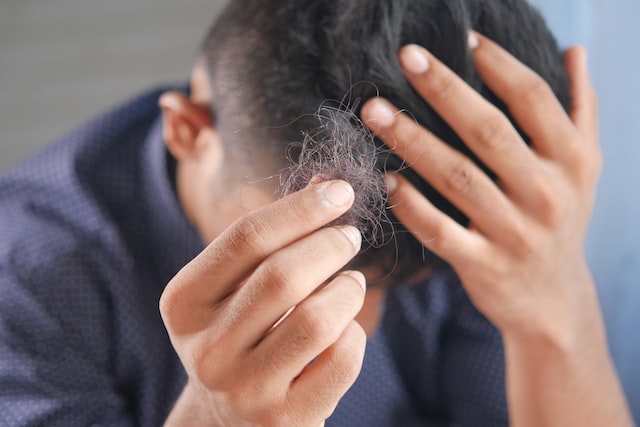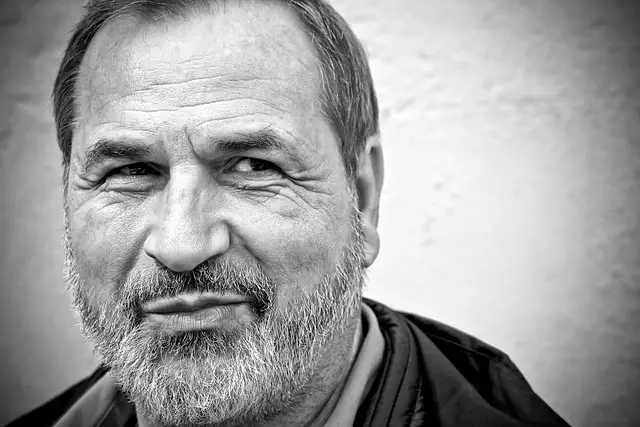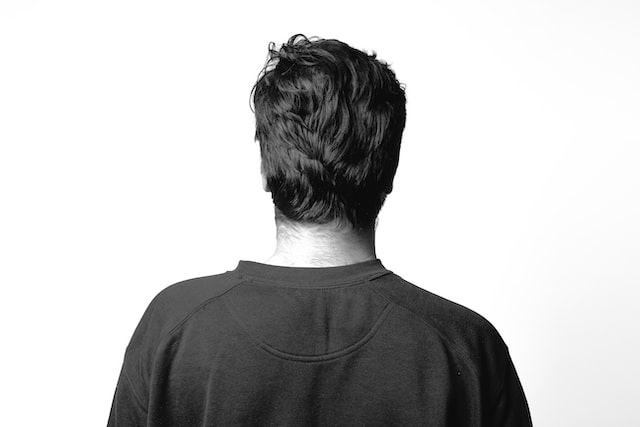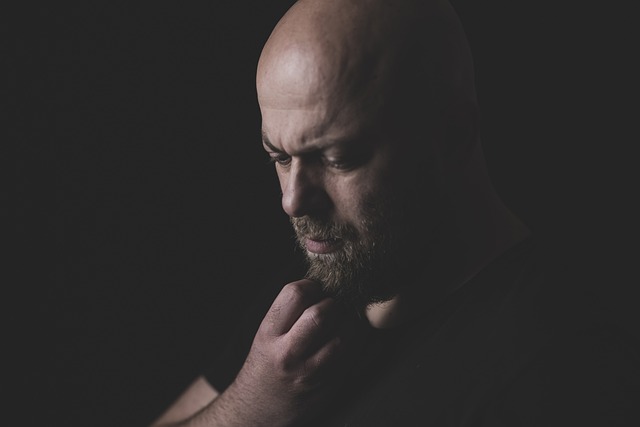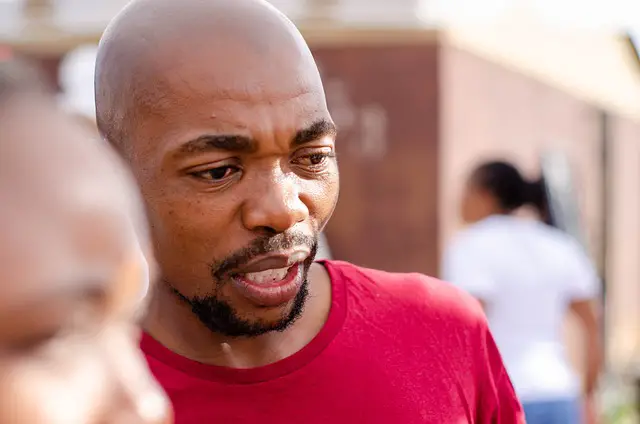Are You A Good Candidate For Hair Transplant? Find Out!

Not everyone who is balding is a good candidate for hair transplant.
To decide whether you’re a good candidate for a hair transplant or not, the surgeon will ask you about your family history, and medical history, examine your hair and scalp and do some blood investigation.
So, are you a good candidate for a hair transplant? And, who is not?
Are You A Good Candidate For Hair Transplant?
A hair transplant is a natural and permanent solution to baldness.
When you get a hair transplant from a well-trained surgeon, the results you will get are more often natural and satisfying.
A hair transplant will not only give you your lost hair back but also give you back your confidence and beauty.
In simple terms, a good candidate for hair transplantation is someone who has stable patterned hair loss, a healthy scalp and body, and, most importantly, reasonable expectations.
There are some conditions where a hair transplant is not a good choice; you’ll not have good results with it. And, there are a few conditions where patients can have hair transplants only if they lower their expectations and accept the complication that may arise.
Here are some factors that are necessary to make you a good candidate for hair transplant:
#1 Young age and minimal hair loss
A hair transplant is worth doing when you have stable and predictable patterned hair loss which is easily visible.
For most men, hair loss starts when they are in their late teens or early twenties. It is an emotionally devastating experience. It is a frustrating and painful situation that everyone, who is suffering from it, wants to immediately get rid of it.
They want to fix hair fall and get back the thick and beautiful hair that they have earlier. But a hair transplant early is not a solution for hair fall, at least at an early age. In fact, it will make the matter worse in the future if go for a hair transplant at a younger age.
Read also: Best age to consider for hair transpalant surgery
During the late teens or early 20s, hair loss is minimum, and the hairline remains very low. Also, the pattern of hair loss will not predictable.
When a hair transplant is done in this period, there is more chance of overharvesting of the donor area hair.
As future hair loss is not predictable yet, more sessions of a hair transplant will be required to cover the newly bald areas in the future but there will be not enough hair left in the donor area for the surgery.
A hair transplant will not stop future hair fall. In fact, when you do a hair transplant at an early age, the shock loss will damage the healthy here causing it to fall prematurely thereby worsening the situation.
When you have a hair transplant at an early age, it will cost you more, require more sessions to get full results, and become an exhausting and bad experience.
That’s why if you’re in your late teens or early 20s, or have minimal hair loss, you’re not a good candidate for a hair transplant yet.
In the early stage of hair fall, it is recommended to use medical therapy such as finasteride, minoxidil, low-level laser therapy, and platelet-rich plasma to control it, rather than going for a hair transplant as a final solution.
#2 Diffuse and unpatterned hair loss
The cause of hair loss in most men is androgenic alopecia. They have male pattern-type hair loss which can be easily fixed with a hair transplant.
But, if you are suffering from any of these types of hair loss, you are not a good candidate for hair transplant surgery:
- Diffuse unpatterned alopecia (DUPA): Loss of hair not only confined to the top of the head but also present over the temporal, occipital, and parietal areas.
- Cicatricial Alopecias: It presents with scarring of the scalp, patchy hair loss, shininess of skin, and hair loss without miniaturization.
- Alopecia areata: An autoimmune disease leading to patchy hair loss over the head, beard, and body area.
#3 Psychological disorder
A hair transplant is not effective in a person who is suffering from a psychological disorder. They are not a good candidate for hair transplants.
They constantly demand surgeons to improve their hair pointing out some trivial hair problems. They won’t be satisfied with the result of a hair transplant, no matter how well the surgery went.
A person suffering from trichotillomania is not a good candidate for a hair transplant because they constantly pull out their hair. They will get no result even after hair transplant surgery
#4 Unrealistic expectation
A hair transplant is not a magic bullet that will give you the result instantly. You have to wait for at least 9 to 12 months to see the result fully.
Also, you cannot get your teenage hair back with a hair transplant.
It will cover the bald area of a scalp and give enough density to bring back your lost confidence and self-esteem.
If you set unrealistic expectations, then you are probably not a good candidate for a hair transplant.
Even if you get pretty good results after doing a hair transplant you won’t be satisfied as you have set higher expectations.
#4 Smoking and Alcohol Drinking
If you are a smoker or drink alcohol heavily, you cannot have optimal results with hair transplant surgery.
Though it is not an absolute contraindication for hair transplant surgery. Drinking and smoking will affect hair growth after the hair transplant leading to poor results.
#5 Disease condition and medication

A person suffering from diabetes mellitus and hypertension can not go for hair transplant surgery immediately. They are not ideal candidates for hair transplants.
First, they have to control their sugar level and blood pressure. They should consult with their doctor before surgery and should stop having drugs that affect hair transplant surgery.
In short, people with hypertension diabetes heart disease, immune diseases, and coagulation disorder are not good candidates for hair transplants.
They can go for hair transplant surgery only after consulting their doctors.
Hair transplant for a diabetic patient: Is it possible?
Diabetes is a chronic disease where the body does not produce enough insulin to maintain the blood sugar in the body within the normal range. As a result, there is high blood sugar in the blood which affects many organs including the heart, eyes and kidneys, and nerve.
Not only that, high blood sugar can also affect hair growth leading to hair transplant failure.
Here’s how increased blood sugar in diabetic patient affect hair transplant:
#1 Decreased blood circulation
Increased blood sugar leads to clogging of the capillaries and small blood vessels by causing inflammation and trauma to the inner layer of these arteries.
Arteries get blocked, and tissue cannot get enough oxygen and nutrients for its survival. Eventually, it is start to die.
In a diabetic patient, blood circulation to the scalp is severely impaired. If a hair transplant is done during this condition, the newly transplanted hair follicle cannot get enough nutrients and oxygen and, as a result, it will die.
To sum up, decrease blood circulation due to high blood sugar levels leads to the death of hair follicles causing hair transplant failure.
#2 Delayed wound healing
High blood sugar also cause delayed wound healing. Diabetic patients have clogged arteries, therefore, have decreased blood supply to the tissue.
In the absence of adequate oxygen and nutrients for growth, there will be delayed wound healing in diabetic persons.
That means hair transplant wound takes a lot of time to heal. And you have to wait for longer to completely heal the wound and resume your day-to-day life.
#3 Increase chance of infection
The transplanted hair is more prone to infection in a diabetic patient than in a healthy person.
Why?
A diabetic person has a weak immune system. They have decreased capability of fighting infection. Also, due to decreased blood supply to the wound, immune cells, which fight the bacteria, can’t reach to wound area.
That’s why most surgeons are reluctant to do hair transplants on a person with a high blood sugar level.
Worse, due to infection, there is a high chance of graft failure in a diabetic person. Does that mean a diabetic person can’t have a hair transplant?
Can Diabetic Patients Have Hair transplant?
A diabetic patient can have a hair transplant only if l blood sugar level is in control.
Both, Type 1 and type 2 Diabetes mellitus patients, with controlled blood sugar levels, can have a successful hair transplant without any complications. For Type 1 Diabetes, a person might need to take insulin to control their blood sugar in the normal range.
For type 2 diabetes, you need to monitor your diet and take prescribed medication given by the doctor.
Your surgeon asks you to visit on a regular basis to see the status of your blood sugar level. They check HbA1c, which reflects the average blood sugar level of the body in the previous 3 months, and random blood sugar in your blood.
Once you have blood sugar within normal range, you’re good to go for hair transplant surgery. On average, you need to maintain a sugar level for 7 to 10 days before a hair transplant for a successful surgery.
For diabetic patients, the hair transplant method, such as DHI and Sapphire FUE, is a good option as it requires a small incision and surgery can be done in a minimal period.
Does high blood pressure affect hair transplants?
Blood pressure is the pressure of blood pushing against the wall of arteries, which carries blood from the heart to different parts of the body.
Normally, blood pressure rises and falls throughout the day. However, if it is persistently high it can damage the heart, and kidney, or leads to strokes.
Not only that, but high blood pressure also impacts hair transplant surgery and hair growth.
High blood pressure, or hypertension when not controlled leads to bleeding during hair transplant surgery. It also increases the surgery time which directly affects the survival of the hair follicle that has been taken out from the scalp.
Also, there is a high chance of graft popping which eventually cause the failure of a hair transplant.
For your safety and a successful hair transplant, a hair surgeon wants your blood pressure to be within the normal range before surgery.
Risk of high blood pressure or hypertension during hair transplant surgery:
#1 Bleeding
As I mentioned above, bleeding is one of the most dreadful complications that may arise when you have high blood pressure during hair transplant surgery.
If there is excessive bleeding during surgery, surgeons will have a hard time controlling the bleeding and it might take longer to complete the surgery.
The harvested hair follicle can survive only for 6 hours in the outside environment. So it should be placed in the recipient area as soon as possible.
As bleeding in hypertensive patients prolongs the surgery, it might cause many hair follicle grafts to die and eventually leading to hair transplant failure.
#2 Palpitation
To make hair transplant surgery painless, surgeons inject anesthetic agents along with adrenaline into the scalp.
Adrenaline is kept with an aesthetic agent to prolong the time of anesthesia. However, sometimes adrenaline enters into the systemic circulation leading to tachycardia.
The hypertensive patient also has cardiac disease. When adrenaline causes an increased heart rate, in the worst case, it may cause ischemic injury to the heart leading to heart failure.
In addition to that, adrenaline also increases blood pressure which worsens the condition if you have already high blood pressure.
#3 Poping of the hair follicle
Graft poping is a term used to describe the tendency of newly transplanted hair follicles to become elevated from the recipient area. It comes out from its place. And, one of the most common causes of graft popping is high blood pressure.
High blood pressure will elevate the hair follicle graft from the scalp leading to its death.
That means you can not retain a lot of graft after surgery which leads to poor results, in some cases hair transplant failure.
Note: Most hypertensive patients usually take blood thinner medication as they also have heart problems. You need to stop this medication before heart transplant surgery as it might lead to excessive bleeding. But you should not stop this medication without asking your doctor first.
Can you have a hair transplant with high blood pressure?
If you have high blood pressure does that mean you cannot have hair transplant surgery?
It is not true.
You can go for hair transplant surgery even if you have very high blood pressure. But before surgery, you need to control the blood pressure, either with medication or a change in your diet and lifestyle. Controlled blood pressure is very crucial to avoid complications and have a successful hair transplant surgery.
Can You Have High Blood Pressure After Hair Transplant?
Yes, high blood pressure can occur after hair transplant surgery, although it’s a relatively rare complication.
The main reason for this increase in blood pressure is the use of adrenaline in combination with an anesthetic agent during the procedure.
How You Get High Blood Pressure After Hair Transplant
During hair transplant surgery, a local anesthetic is used to numb the scalp and minimize pain.
This anesthetic often contains adrenaline, which helps to constrict blood vessels and reduce bleeding.
However, in some cases, the adrenaline may enter the systemic circulation, leading to an increase in heart rate (tachycardia) and high blood pressure.
For healthy individuals without any heart-related issues, this temporary spike in blood pressure typically doesn’t cause any harm.
However, for patients with pre-existing heart problems, it could potentially worsen their condition.
That’s why surgeons usually perform an electrocardiogram (ECG) on patients over the age of 40 before hair transplant surgery to rule out any cardiac problems.
Does High Blood Pressure Affect Hair Transplant?
High blood pressure itself doesn’t directly affect the success of a hair transplant.
However, if you have pre-existing high blood pressure, it’s essential to manage and control it before undergoing the procedure.
Uncontrolled high blood pressure can increase the risk of complications during surgery, so it’s crucial to discuss your medical history with your surgeon before moving forward.
Severe Headache After Hair Transplant
Some patients may experience a severe headache after hair transplant surgery.
This side effect can be attributed to the tightness of the scalp after the procedure, as well as the anesthetic and adrenaline used during surgery.
Most headaches will subside within a few days, and your surgeon may recommend over-the-counter pain relievers to help manage the discomfort.
Other Side Effects of Hair Transplant
In addition to high blood pressure and headaches, there are other potential side effects associated with hair transplant surgery. Some of these include:
- Swelling and redness at the transplant site
- Itching and irritation on the scalp
- Temporary hair shedding, also known as “shock loss”
- Infection or inflammation at the transplant site
- Scarring at the donor site
Bottom Line
To sum up, you are a good candidate for hair transplant if you have
- Patterned and predictable hair loss
- realistic expectation
- free from a psychological disorder or any diseases
- not under any medication that may cause complications during surgery.
Reference:

